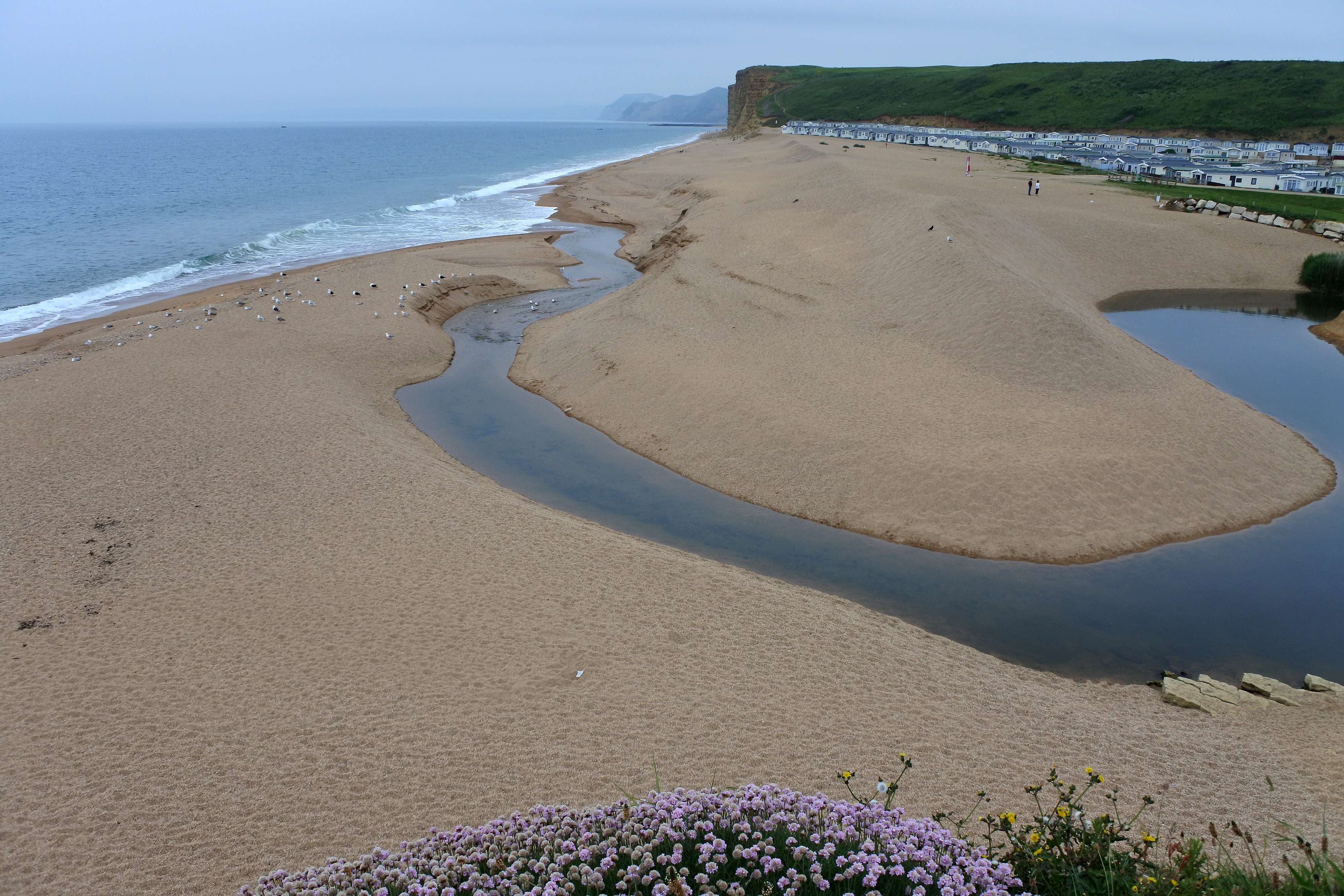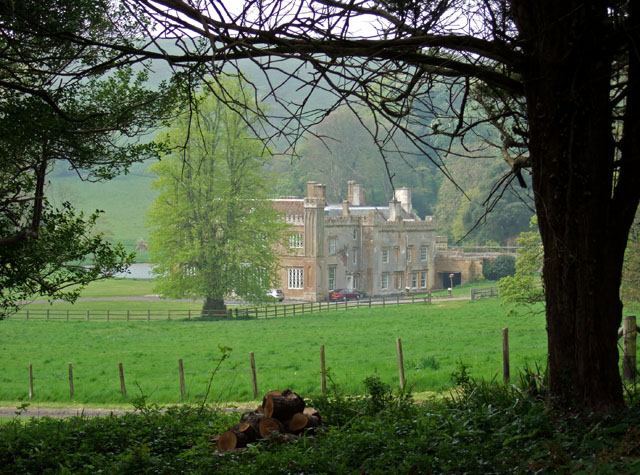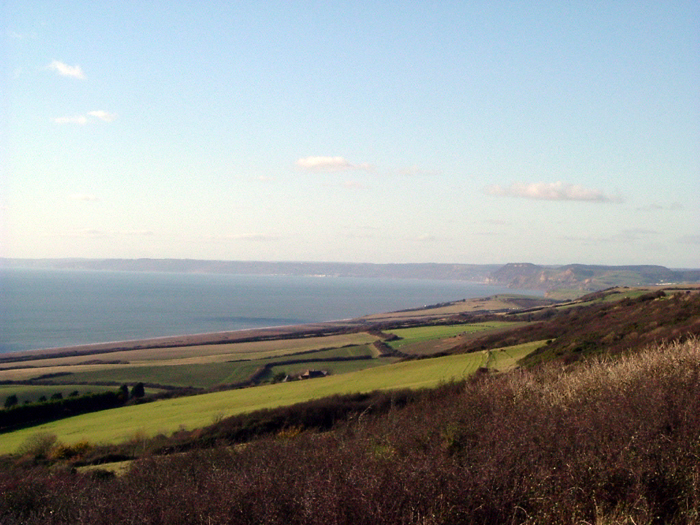|
River Bride, Dorset
The River Bride is a river in Dorset, England, situated between the towns of Dorchester and Bridport. It is approximately long and has a catchment area of . It rises at an altitude of beneath an artificial lake at Bridehead House, Littlebredy, then flows west to its mouth on the English Channel near Burton Bradstock. It has nine tributaries and descends more than in its first three miles. It reaches the coast just west of Burton Bradstock through a break in coastal cliffs at Burton Freshwater; here it meets the western end of Chesil Beach where it "forms itself into a pool and fights to get to the sea intact before sinking into the shingle." The river's name is of Celtic origin. It is derived from Old Welsh ''Brydi'', related to Cornish ''bredion'' "to boil", so means "boiling or gushing" stream. The river gives its name to Long Bredy, Littlebredy, Burton Bradstock and probably Bridport. Notes Bride A bride is a woman who is about to be married or who is newl ... [...More Info...] [...Related Items...] OR: [Wikipedia] [Google] [Baidu] |
Celtic Languages
The Celtic languages (usually , but sometimes ) are a group of related languages descended from Proto-Celtic. They form a branch of the Indo-European language family. The term "Celtic" was first used to describe this language group by Edward Lhuyd in 1707, following Paul-Yves Pezron, who made the explicit link between the Celts described by classical writers and the Welsh and Breton languages. During the 1st millennium BC, Celtic languages were spoken across much of Europe and central Anatolia. Today, they are restricted to the northwestern fringe of Europe and a few diaspora communities. There are six living languages: the four continuously living languages Breton, Irish, Scottish Gaelic and Welsh, and the two revived languages Cornish and Manx. All are minority languages in their respective countries, though there are continuing efforts at revitalisation. Welsh is an official language in Wales and Irish is an official language of Ireland and of the European Union ... [...More Info...] [...Related Items...] OR: [Wikipedia] [Google] [Baidu] |
Littlebredy
Littlebredy (also written Little Bredy, pronounced ) is a small village and civil parish in the English county of Dorset, situated approximately west of the county town Dorchester. It is sited at the head of the valley of the small River Bride, surrounded by wooded chalk hills of the Dorset Downs. The parish contains the Valley of Stones National Nature Reserve and is in an area rich with evidence of early human occupation. In the 2011 census it had a population of 121. History The area around Littlebredy is rich with evidence of early human occupation, including stone circles, strip lynchets, tumuli (long and round barrows) and a probable hill fort.Ordnance Survey 1:25,000 Pathfinder Series of Great Britain, Sheet SY 49/59 Bridport, published 1977 North and east of the village the density of barrows is as great as the area around Stonehenge. One mile north of the village and just outside the parish is a group of 44 Bronze Age round barrows of various sizes, known as Winte ... [...More Info...] [...Related Items...] OR: [Wikipedia] [Google] [Baidu] |
England
England is a country that is part of the United Kingdom. It shares land borders with Wales to its west and Scotland to its north. The Irish Sea lies northwest and the Celtic Sea to the southwest. It is separated from continental Europe by the North Sea to the east and the English Channel to the south. The country covers five-eighths of the island of Great Britain, which lies in the North Atlantic, and includes over 100 smaller islands, such as the Isles of Scilly and the Isle of Wight. The area now called England was first inhabited by modern humans during the Upper Paleolithic period, but takes its name from the Angles, a Germanic tribe deriving its name from the Anglia peninsula, who settled during the 5th and 6th centuries. England became a unified state in the 10th century and has had a significant cultural and legal impact on the wider world since the Age of Discovery, which began during the 15th century. The English language, the Anglican Church, and Eng ... [...More Info...] [...Related Items...] OR: [Wikipedia] [Google] [Baidu] |
Dorset
Dorset ( ; archaically: Dorsetshire , ) is a county in South West England on the English Channel coast. The ceremonial county comprises the unitary authority areas of Bournemouth, Christchurch and Poole and Dorset. Covering an area of , Dorset borders Devon to the west, Somerset to the north-west, Wiltshire to the north-east, and Hampshire to the east. The county town is Dorchester, in the south. After the reorganisation of local government in 1974, the county border was extended eastward to incorporate the Hampshire towns of Bournemouth and Christchurch. Around half of the population lives in the South East Dorset conurbation, while the rest of the county is largely rural with a low population density. The county has a long history of human settlement stretching back to the Neolithic era. The Romans conquered Dorset's indigenous Celtic tribe, and during the Early Middle Ages, the Saxons settled the area and made Dorset a shire in the 7th century. The first re ... [...More Info...] [...Related Items...] OR: [Wikipedia] [Google] [Baidu] |
Dorset (unitary Authority)
Dorset is a unitary authority area in the ceremonial county of Dorset, England, which came into existence on 1 April 2019. It covers all of the ceremonial county except for Bournemouth, Christchurch and Poole. The council of the district is Dorset Council, which was in effect Dorset County Council re-constituted so as to be vested with the powers and duties of five district councils which were also abolished, and shedding its partial responsibility for and powers in Christchurch. History and statutory process Statutory instruments for re-organisation of Dorset (as to local government) were made in May 2018. These implemented the Future Dorset plan to see all councils then existing within the county abolished and replaced by two new unitary authorities on 1 April 2019. *The unitary authorities of Bournemouth and Poole merged with the non-metropolitan district of Christchurch to create a single unitary authority called Bournemouth, Christchurch and Poole Council, which has since c ... [...More Info...] [...Related Items...] OR: [Wikipedia] [Google] [Baidu] |



.jpg)
